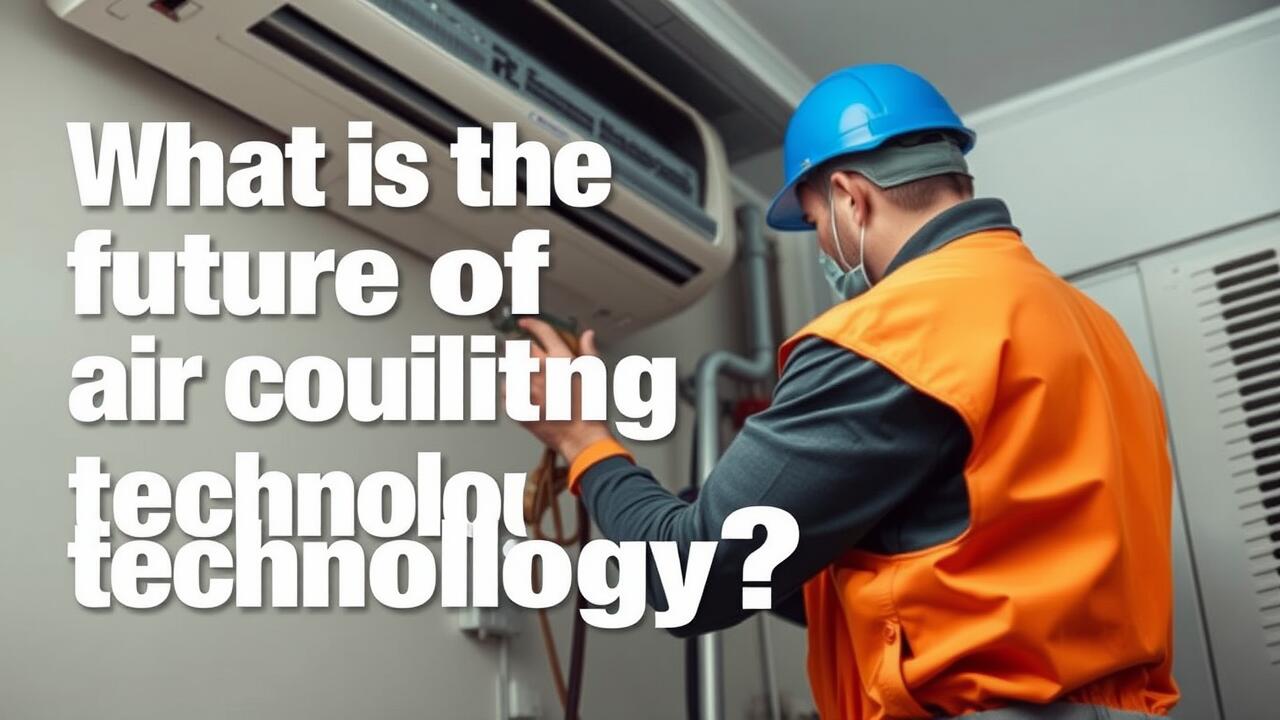What is the future of air conditioning technology?

Table Of Contents
The Role of Artificial Intelligence
Artificial intelligence is rapidly transforming the landscape of air conditioning technology. Smart algorithms can analyze usage patterns and preferences, enabling systems to optimize their performance. This leads to enhanced energy efficiency, which not only reduces costs for consumers but also lessens environmental impact. Advanced machine learning techniques allow these systems to learn from user interactions, adapting their cooling outputs to suit specific needs throughout the day.
Furthermore, AI plays a pivotal role in improving user experience by facilitating voice control and mobile app integration. This allows individuals to adjust settings remotely and receive real-time updates on system efficiency. The ability to predict potential failures through data analytics contributes to overall reliability. As AI continues to evolve, its integration within air conditioning units promises smarter, more responsive solutions tailored to modern lifestyles.
AI-Driven Predictive Maintenance
The integration of artificial intelligence into air conditioning technology has significantly enhanced predictive maintenance capabilities. By leveraging data analytics and machine learning algorithms, these systems can analyze patterns in equipment performance, identifying potential issues before they escalate into costly breakdowns. This proactive approach minimizes downtime and extends the lifespan of units, ensuring consistent climate control and operational efficiency.
AI-driven solutions allow for real-time monitoring of components and systems. Diagnostics can be performed continuously, providing insights into wear and tear, while also predicting when service or replacements might be necessary. With these advancements, HVAC professionals can focus on targeted maintenance efforts, optimizing resource allocation and improving overall service quality.
Compact and Portable AC Units
The demand for flexible cooling solutions has led to a significant rise in the popularity of compact and portable air conditioning units. These systems are designed to be lightweight and user-friendly, making them ideal for various living spaces and situations. Their mobility allows users to efficiently cool specific rooms without the need for a centralized system. This is particularly beneficial for urban dwellers or those with limited installation opportunities.
Manufacturers are increasingly focusing on developing more efficient models that incorporate the latest technology for improved energy consumption. Many portable units now feature energy-saving modes and programmable timers, enabling users to optimize cooling without excessive power use. As these units evolve, they are also becoming quieter and more powerful, ensuring comfort without compromising living space.
Innovations in Mobility and Design
Mobile air conditioning solutions are evolving to meet the demands of urban living and eco-awareness. Lightweight, compact units are becoming increasingly popular, providing consumers with the option to easily transport their cooling systems from one space to another. Innovations in battery technology allow these units to operate efficiently while minimizing energy consumption. Designs that focus on portability enable users to enjoy climate control in various environments, from small apartments to outdoor settings.
The integration of smart design elements contributes to enhanced user experiences. Sleek aesthetics and user-friendly interfaces make these portable systems appealing. Additionally, manufacturers are exploring modular designs that allow users to customize their setups based on specific needs. Features such as app connectivity and remote control options enrich the convenience factor, making cooling solutions more accessible and versatile for all users.
Health and Air Quality Improvements
Innovations in air conditioning technology are increasingly focused on enhancing indoor air quality. Modern systems integrate advanced filtration technologies that target allergens, pollutants, and harmful particles. These systems utilize multi-stage filters, including HEPA and activated carbon, capable of capturing microscopic contaminants. Such improvements contribute to a healthier living environment, especially for individuals with respiratory issues or allergies.
Furthermore, the integration of smart sensors in air conditioning units allows for real-time monitoring of indoor air quality. They can detect changes in humidity and levels of carbon dioxide, adjusting the operation accordingly to maintain optimal conditions. This proactive approach not only ensures comfort but also promotes well-being by reducing the risk of airborne diseases and maintaining fresh air circulation.
Air Conditioning Systems with Filtration Technology
As concerns over indoor air quality continue to grow, manufacturers are increasingly integrating advanced filtration technologies into air conditioning units. These systems are designed to not only regulate temperature but also capture and eliminate airborne pollutants. HEPA filters, UV-C light sanitation, and activated carbon are among the innovations being incorporated, enhancing the overall health benefits of climate control systems.
The incorporation of smart sensors allows for the constant monitoring of air quality. This feature automatically adjusts filtration levels based on the detected concentration of pollutants. Such systems can also provide real-time feedback to users, enabling them to make informed decisions about their indoor environment. The emphasis on maintaining healthy air quality reflects a broader trend toward creating living and working spaces that prioritize occupant well-being alongside comfort.
FAQS
What advancements can we expect from artificial intelligence in air conditioning technology?
We can expect AI to enhance energy efficiency, optimize cooling patterns, and enable predictive maintenance, allowing systems to anticipate issues before they become serious problems.
How do compact and portable AC units improve air conditioning options?
Compact and portable AC units provide flexibility and convenience, allowing users to cool specific areas as needed, and are ideal for smaller spaces or temporary cooling solutions.
What role does air quality play in the future of air conditioning systems?
The future of air conditioning systems will increasingly focus on integrating advanced filtration technologies to improve indoor air quality by removing pollutants, allergens, and pathogens.
How can AI-driven predictive maintenance benefit homeowners?
AI-driven predictive maintenance can reduce repair costs and downtime by forecasting potential issues, scheduling maintenance proactively, and extending the lifespan of the air conditioning unit.
Are there any new design innovations in air conditioning technology?
Yes, innovations in mobility and design include sleek, aesthetically pleasing units that blend with home decor, as well as increased emphasis on energy efficiency and sustainability in the manufacturing process.